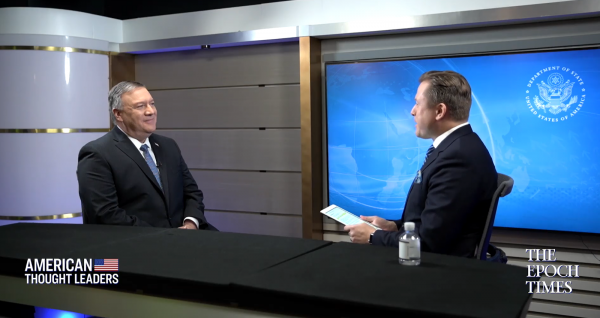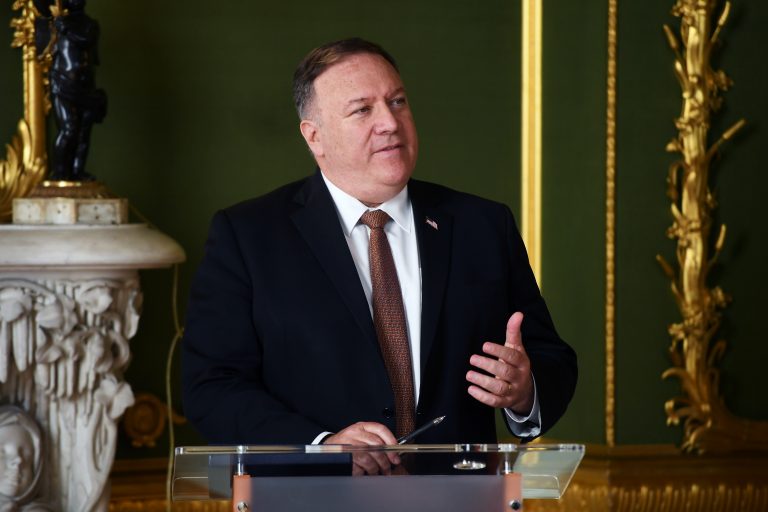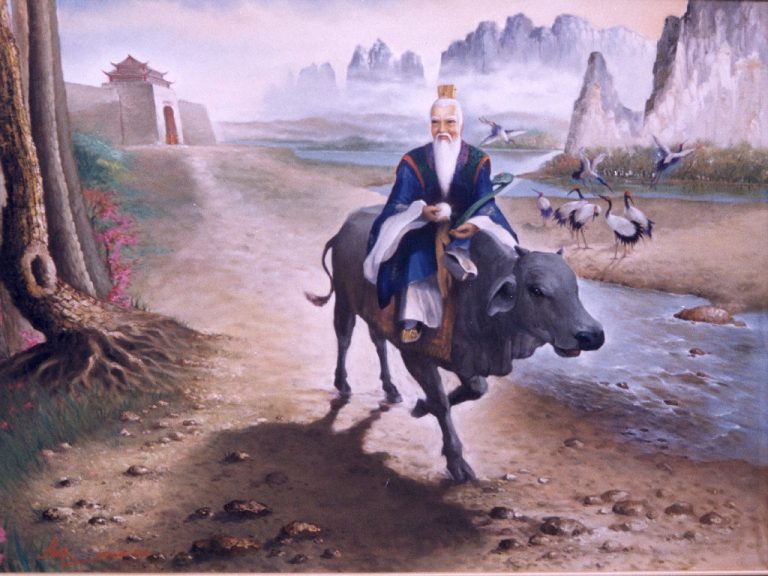In a recent interview, U.S. Secretary of State Mike Pompeo described America’s rapidly shifting policies toward Beijing, saying: “We’ve now changed fundamentally how I think the West looks at China.”
Speaking to Jan Jekielek, host of The Epoch Times’ American Thought Leaders on Jan. 4, Pompeo highlighted his administration’s emphasis on human rights and religious freedom as a cornerstone in their relationship with Communist China — something he has often said was ignored by previous U.S. administrations at the world’s peril.
“It’s at the center of every civilization, this idea that human beings have inherent dignity because of their humanness,” he said. “And if you get that piece wrong, bad things flow from that. Lots of diplomatic things — military bedlam — lots of bad things flow from that.”
Pompeo, whose State Department recently took the unprecedented step of sanctioning Chinese Communist Party (CCP) officials for the 21-year-long persecution of Falun Gong, singled out the regime’s crusade against freedom of religion through its heavy persecution of Uyghur Muslims in Xinjiang and people of faith in Mongolia, the continual suppression of Tibet, and Christians across the country through the “Sinicization” of the Bible — that is, the Party’s revision of the holy text to fit “socialist core values.” He described the atrocities as “fundamental affronts to human dignity” and “a hallmark of authoritarian regimes.”
“We’ve known the nature of this regime,” Pompeo said. “And frankly freedom-loving people across the world have known the nature of authoritarian regimes throughout history and yet we ignored it.”
Success
You are now signed up for our newsletter
Success
Check your email to complete sign up
“And General Secretary Xi Jinping is no different. He knows that he has to extend ever-increasing power and control in order to maintain his capacity to rule. And that shuts out the important space that religious freedom should have for every human being in the world.”
Pompeo expressed his pride in the work of the State Department, President Donald Trump, and the administration behind them have done to deter the CCP’s desecration of freedom of religion: “I am confident that the world will keep up this drumbeat demanding simply that the Chinese Communist Party permit people to exercise their God-given rights to practice and to — and not practice their faith in the way that they so choose.”
China is not the Chinese Communist Party
Secretary Pompeo drew a demarcation between the Chinese people and the Communist Party that has controlled the country for more than 70 years.
Expressing his respect for traditional Chinese culture and history, he said: “The history of this place is long and storied, and the people who occupy this place are good people.”
“Sadly, they live under the jackboot of an authoritarian regime that denies them the capacity to grow their families… Some of the greatest tragedies of civilization of the last 50 years have taken place inside of China.”

(Image: American Thought Leaders/The Epoch Times)
“But it’s not the people driving that,” clarified Pompeo. “It’s these leaders who are stealing money, driving state-owned enterprises to do things that are disconnected from the way the world ought to operate.”
“And so I admire the Chinese people. I am confident that the Chinese people want a different path forward. They want their freedoms, and it is the Chinese Communist Party denying them. But it is important to keep them separate,” Pompeo continued.
“We have — there are great Chinese people who live all across the world, including here in the United States of America. We want to honor them and we admire them, and we hope that they too will join the call to change the nature of how this regime behaves in its international activities.”
Pompeo emphasized that while the United States has expelled more than 1,000 CCP spies and Chinese nationals with demonstrable ties to the regime-controlled People’s Liberation Army, the vast majority of Chinese exchange students in the U.S. — more than 300,000 — were welcome to stay and learn from American values.
The Commission on Unalienable Rights
Pompeo concluded the interview by noting that the Founding Fathers recognized the natural rights given directly to man “by their Creator.”
He made good on his wish to safeguard and uphold these natural rights by establishing the Commission on Unalienable Rights, chaired by Mary Ann Glendon, a Learned Hand Professor of Law at Harvard who is an authority on comparative constitutional law. Glendon previously served under President George W. Bush as Ambassador to the Holy See.
“We had people from many different faiths and many different political backgrounds go back to the founding and say, tell me — tell me how our foreign policy could effectively be grounded in the American tradition,” Pompeo said.
“And I asked them to do that, and it was fascinating to see because they also took a look at other traditions around the world — human rights traditions — and we’ve now launched a global effort to talk about these things that matter, these intrinsic rights that matter to each of us so much.”
According to the state secretary, the Commission’s Final Report “goes back and it reminds us of the greatness of America and how smart and capable our Founders were and why that is so central to the successes that our nation has had.”
Leo Timm contributed to this report.
Follow us on Twitter or subscribe to our email list













